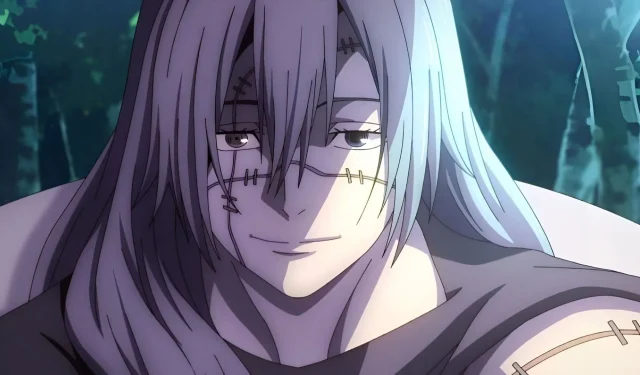The characters within the universe of Jujutsu Kaisen serve as profound reflections of human psychological states, utilizing powerful metaphorical symbolism. Among these intricate personalities, Mahito emerges as a particularly unsettling embodiment of humanity’s darker instincts. A nuanced inquiry into what Mahito represents transcends the superficial analysis commonly reserved for antagonists.
Understanding Mahito’s Symbolism
Mahito personifies the darker aspects of human sentiment, encompassing manifestations of hatred, psychological manipulation, and the repressed emotions that many individuals harbor. As a cursed spirit originating from human transgressions, he illustrates the capacity for cruelty, fear, and destructive tendencies that resides within us all. This disturbing representation elevates Mahito from a conventional villain to a philosophical examination of the fragile nature of identity.
Mahito as a Unique Cursed Spirit
What sets Mahito apart in the Jujutsu Kaisen narrative is his divergence from typical antagonist roles. As a cursed spirit, he encapsulates a full spectrum of human emotions, especially hatred and grief, leading to mental breakdowns. His existence is predicated on the idea that he is a physical manifestation of humanity’s sins and societal negativity.
Moreover, Mahito possesses a unique philosophical stance regarding souls, viewing them as malleable entities divorced from their physical beings. This perspective allows him to justify his gruesome experiments, as he rationalizes his chilling fascination with manipulation and control. Psychological manipulation becomes his most potent weapon, enabling him to exploit human vulnerabilities effectively.
Mahito’s ability to manipulate souls can be vividly seen in his interactions with Junpei. By systematically dismantling Junpei’s emotional defenses, he leads the unsuspecting teenager towards a tragic fate, showcasing the depth of Mahito’s sinister abilities.
Mahito’s Challenge to Yuji Itadori
For Yuji Itadori, Mahito serves as a profound existential challenge. Their confrontations extend beyond mere physical skirmishes; they probe Yuji’s understanding of human nature, empathy, and personal resolve. Mahito represents a potential path of moral decay that Yuji could traverse should he abandon his ethical convictions.
Each engagement between them marks a pivotal moment in Yuji’s character development. As their rivalry evolves from chaotic violence to deliberate, tactical conflict, the parallels between Yuji’s growth and Mahito’s transformation highlight a deeper struggle between hope and nihilism.
Further revealing his complex character, Mahito exhibits vulnerability during critical moments. His philosophical discussions about the nature of humanity and souls cannot veil the truth of his cowardice. In the face of serious threats, his composed facade shatters, laying bare his cruel and childish essence beneath an intellectual exterior.
Conclusion: The Deeper Meaning Behind Mahito
Mahito transcends conventional villain tropes in Jujutsu Kaisen, emerging as a complex philosophical inquiry into human nature. He compels audiences to confront harsh truths about hatred and the pervasive potential for manipulation and darkness within themselves.
As a cursed spirit born from the negativity of humanity, Mahito serves as a powerful narrative device that encourages characters and viewers alike to ponder the origins of evil. His presence resonates throughout the series, offering both a formidable challenge to be overcome and a profound exploration of the human condition.


